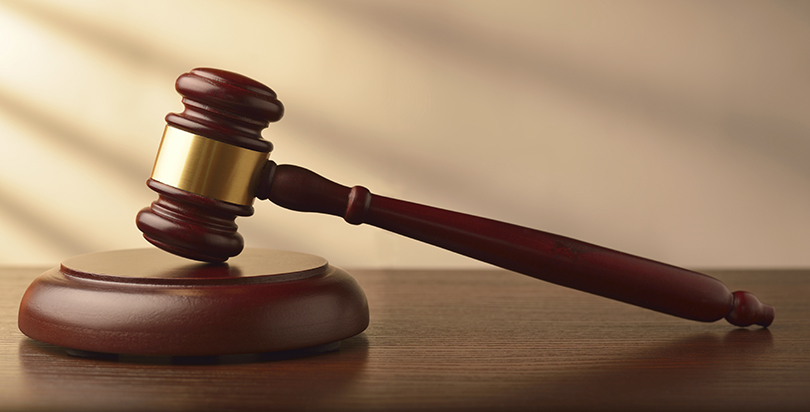New York City
A school in the nation’s largest charter network says in a lawsuit that New York City’s teachers union is “unlawfully attempting to force” collective bargaining provisions on its teachers, part of an intensifying dispute that could deepen factional disagreements among educators in the city and nationally.
The KIPP Academy Charter School filed a federal complaint against the United Federation of Teachers on March 14 alleging that the union contract governing working conditions for tens of thousands of city teachers doesn’t apply to the 80 employees on its South Bronx campus.
KIPP Academy is asking the court to find that the UFT has no authority to intervene over teacher disputes, pay, or working conditions at the school.
Some KIPP Academy teachers appear to disagree: Last fall, the UFT demanded that the school enter into arbitration to settle a list of grievances teachers raised to the union. Among them: failure to provide summer vacation pay and an appropriate number of sick days, insufficient prep time, and insufficient breaks during the school day.
The arbitration dispute was brewing for months, but it escalated in January — and led KIPP to file the lawsuit this month — after the UFT learned that staff at KIPP Academy were putting together a petition to decertify, or drop union representation. In order to decertify a union, the National Labor Relations Board requires 30 percent of employees to sign a petition asking that it conduct a secret staffwide vote on the request. In a Jan. 19 press release, the UFT accused school management of threatening the jobs of those who didn’t sign the petition, an action that would violate federal labor law, the UFT said.
A KIPP spokesperson confirmed that teachers filed a petition to decertify Jan. 25 but said officials had no knowledge of alleged threats.
“KIPP Academy is not aware of anything that could possibly be considered a violation of any law and it intends to address the allegations in the charge with the National Labor Relations Board,” Superintendent Jim Manly, who oversees all 11 KIPP schools in New York City, said in a written response to The 74.
KIPP also filed its own unfair labor practice charge Jan. 30 against the UFT, alleging that the union has improperly asserted a right to arbitrate work issues at the school, the KIPP spokesperson said. The teachers’ petition to drop the union is on hold while the National Labor Relations Board addresses both of the unfair labor practice charges, according to the spokesperson.
This isn’t the first time KIPP Academy has sought independence from the union. A decertification petition teachers filed in 2009 was dismissed by a state judge in a Public Employment Relations Board case. The board granted UFT’s argument that decertification was subject to a vote by the majority of the 75,000 teachers in the city school system.
UFT spokesman Dick Riley said the union began seeking arbitration last year after KIPP Academy teachers complained that the contract was not being followed.
“KIPP, having lost in state court, is now trying to get the federal court to hear its attempt to avoid arbitration of the teachers’ complaints,” Riley said in an email.
Most charters aren’t unionized, but as a conversion charter school — it was established in a district school, which has since closed — and one of only four in the city, KIPP Academy has unique circumstances.
Collective bargaining issues at the school trace back to 1995, according to the federal complaint, when KIPP founder David Levin first started a program serving at-risk students at P.S. 156 in the Bronx. He later applied for a charter, and the school subsequently converted to KIPP Academy in 2000. It currently serves 800 students in grades K-8.
At the time, the staff were employed by the Department of Education and represented by the UFT, and therefore were subject to “automatic union representation” under the state Charter Schools Act when the school was converted.
“At no time did the KIPP Academy classroom teacher ever vote to have the UFT represent them. They were subject to automatic, non-consensual representation by the UFT,” the complaint states. Further, it alleges that despite collecting dues, the union has never actually carried out representative functions for staff in the school’s 16-year existence, nor objected to its policies.
KIPP Academy teachers work longer hours than mandated by the UFT contract, including on Saturdays, after school, and during some school breaks. According to the complaint, disputes over working conditions or other issues at KIPP Academy are handled solely according to the employee handbook; nothing has ever been arbitrated.
The day the UFT went public with its complaints, Manly said in a letter to staff that the school’s achievements — including elementary and middle school students outperforming their peers in the South Bronx and the state, and alumni graduating from college at four times the national rate — would not be possible under a UFT collective bargaining agreement.
“We are continuing to argue that KIPP Academy always has had, and wants to maintain the right to solve problems together — without outside interference,” he wrote in a follow-up letter March 15.
Battles like this one could proliferate as the charter sector matures and expands, and as teachers gain seniority, said David Bloomfield, professor of educational leadership, law and policy at CUNY’s Brooklyn College.
In this case, he added, “KIPP is in a slightly awkward position [of] seeming to question teachers’ right to collectively bargain. If they’ve been paying dues all along, then the union has an obligation, if not a desire, to represent these teachers.”
Steve Zimmerman, co-director of the New York City Coalition of Community Charter Schools (C3S), which represents several schools with collective bargaining agreements, said successful independent contracts have been negotiated between non-conversion charter schools and the UFT.
“Many negotiations have worked out fairly well as far as providing teachers with the job security that they want and providing principals with the flexibility in running the school that they need,” he said.
But conversion charters don’t generally have that option, he said — they’re subject to the UFT contract that was in place when they transitioned (though the state Charter Schools Act provides an opportunity to modify the contract). It’s the main reason that few, if any, new conversion charters have appeared in recent years, Zimmerman said.
“We would love to work with [the UFT] long-term to resolve some of those issues,” he said. “Visionaries at the UFT should also look at, long-term, what’s in the best interest of working with the charter sector. The charter sector is not going away, and there are a number of us here at C3S that want to improve relationships with UFT. The fighting itself is unfortunate, and it doesn’t move the conversation forward.”
Disclosure: The KIPP charter network and The 74 both receive funding from The Walton Family Foundation, The Doris & Donald Fisher Fund, Karsh Family Foundation, The Eli and Edythe Broad Foundation, and The Bill & Melinda Gates Foundation.
Get stories like these delivered straight to your inbox. Sign up for The 74 Newsletter


;)
